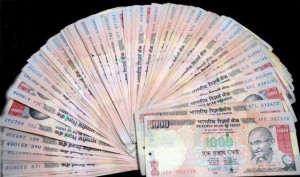Very few know that Jack Ma, an entrepreneur from Hangzhou started the now giant but then small scale online marketplace Alibaba, in 1996. His capital investment summed up to $60,000, which now in retrospect appears to be a very small figure since Alibaba is at present the toast of Wall Street, having completed the biggest-ever initial public offer (IPO) at $25 billion.
Though the story has the sound of a fairy tale, the truth is that it is just the result that you get when you leave luck behind and put talent and hard work to good use. The owner of the firm is not only a Wall Street hero today for breaking several records along the path to victory in Wall Street, but has also become the richest man in China, today with a net worth estimated at $22 billion.
In terms of competition:
As a result of this totally unexaggerated heroic victory, Alibaba Group Holdings has now:
- Surpassed the value of blue-chips such as IBM, Procter & Gamble and Coca-Cola.
- Its market capitalisation is higher than that of its competitors Amazon and eBay combined.
The U.S. connection:
It is a well-known fact is that U.S. is biggest market for China’s manufactured products, but it is interesting to know that the U.S might also be its biggest financier. Apart from Alibaba, the biggest IPO ever in Wall Street was that of Agricultural Bank of China which raised $22.1 billion in 2010 and there are many other Chinese companies too that have raised money in the U.S
Obviously, Alibaba’s valuation at $231 billion on listing day has set off fears of a new bubble in the U.S. market. Those who consider the valuation that Alibaba has secured as unjustified, they are weighing on various factors like concentration of voting powers with Mr. Ma and his close circle, besides the emerging competition in China and Alibaba’s opaque ownership structure.
Analysts are also comparing the frenzy over the Alibaba listing to that which prevailed in Wall Street during the days of the dotcom explosion. But yet the dotcom-era companies commanded respect only on the basis of promise and not profitability and deserved the madness that they attracted but Alibaba is a profitable enterprise and is also a dominant player in China’s e-commerce industry.
Also read: RBI to Issue Guidelines for Smaller Finance Banks
Indian side of story:
Firstly in terms of U.S. connection, Indian companies had issued American Depository Receipts and listed in the U.S. many years before the Chinese ones but the respective gage and character are simply not analogous.
But the Chinese company’s achievement is an eye-opener for Indian e-commerce firms such as Flipkart. Though both in terms of Internet penetration and the size of the online market, there is no comparison between China and India, still it is true that India’s e-commerce industry is now at an interesting point. The popularity, widening consumer base, reputation, etc. are broadening each day. Among the various e-commerce industries, Flipkart, the market leader, has already secured several rounds of funding, but competition is not far behind. Amazon is buckling up and had recently declared the intention to dominate the Indian market. To up the game, while the firms slug it out and the consumer benefits, the government should push broadband access and frame enabling policies for the growth of this sunrise industry.
About Tushita
Tushita is a political writer at thenational.net. Her deep rooted interest in politics, passion for writing and craze for travelling define her. Writing since her school days, she aspires to write lifelong and make the world a happier place to live with the power of her pen.




















